This conference will bring together prominent environmental and administrative law scholars from across the country, and explore different ways in which administrative agencies have implemented environmental policies largely without court supervision or intervention.
Friday, September 16, 2016 at 9:30AM - 4:45PM
While environmental law is mostly taught using statutes and cases, a significant amount of environmental law and policy is made outside of these mechanisms, and plays an important role not only in reaching environmental objectives, but in creating a context in which formal lawmaking is carried out. This conference will examine some of the advantages and disadvantages of some of this kind of informal lawmaking.
Schedule
9:30-9:45:
Welcome
9:45-10:30:
Eric Biber, Professor of Law, University of California Berkeley School of Law: The "Leave it in the Ground" Movement
Comments: Shi-Ling Hsu, D’Alemberte Professor and Associate Dean for Environmental Programs, Florida State University College of Law
10:45-11:30:
Sarah Light, Assistant Professor of Legal Studies and Business Ethics, University of Pennsylvania, The Wharton School of Business: The Military-Environmental Complex as Environmental Law Without Courts
Comments: Arden Rowell, Professor and University Scholar, University of Illinois College of Law
11:45-12:30:
Christopher Walker, Associate Professor of Law, The Ohio State University Moritz College of Law: Lawmaking Within Federal Agencies and Without Judicial Review
Comments: Arden Rowell
2:00-2:45:
Robin Craig, William H. Leary Professor of Law, University of Utah S.J. Quinney College of Law: Fisheries Management: What Gets Challenged and What Doesn't
Comments: Erin Ryan, Elizabeth C. and Clyde W. Atkinson Professor of Law, Florida State University College of Law
3:00-3:45:
Robert Glicksman, J.B. and Maurice Shapiro Professor of Environmental Law and Emily Hammond, Associate Dean for Public Engagement and Professor of Law: Agency Behavior and Discretion on Remand
Comments: Mark Seidenfeld, Patricia A. Dore Professor of Administrative Law, Florida State University College of Law
4:00-4:45:
Sharon Jacobs, Associate Professor of Law, University of Colorado Law School, and Emily Bremer, University of Wyoming College of Law:Agency Innovation in Vermont Yankee's White Space
Comments: Mark Seidenfeld
PARTICIPANTS
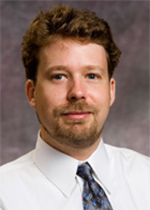 Eric Biber, Professor of Law
Eric Biber, Professor of Law
University of California Berkeley School of Law
Professor Biber's teaching and research interests are environmental and natural resources law, administrative law, and property. Prior to joining Berkeley in 2006, he worked as a litigator in the Denver office of Earthjustice, a public-interest nonprofit organization specializing in public lands and other environmental cases. He holds an J.D. from Yale Law School, a master’s of Environmental Science with a focus in Conservation Biology from Yale School of Forestry & Environmental Studies, and an A.B. in Government from Harvard University.
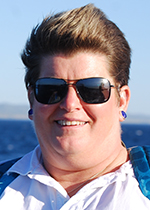 Robin Craig, William H. Leary Professor of Law
Robin Craig, William H. Leary Professor of Law
University of Utah S.J. Quinney College of Law
Professor Craig specializes in all things water and is the author, co-author, or editor of nine books. She has also authored or co-authored over 75 law review articles and book chapters. In addition, Craig has been appointed to five National Research Council committees; has consulted on water quality issues with the government of Victoria, Australia, and the Council on Environmental Cooperation in Montreal, Quebec, Canada; and was one of 12 marine educators chosen to participate in a 2010 program for marine educators in the Papahanamokuakea Marine National Monument. Craig received her B.A. in English from Pomona College, her M.A. in Writing from the Johns Hopkins University, her Ph.D. in English from the University of California at Santa Barbara, and her J.D. from Lewis and Clark Law School.
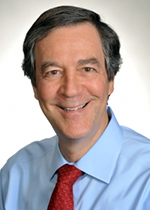 Robert Glicksman, J.B. and Maurice C. Shapiro Professor of Environmental Law
Robert Glicksman, J.B. and Maurice C. Shapiro Professor of Environmental Law
George Washington University Law School
Professor Glicksman has written numerous book chapters and articles on a variety of environmental and natural resources law topics, concentrating recently on topics such as climate change, federalism issues in environmental law, the challenges facing the federal land management agencies, and environmental enforcement. Glicksman has practiced with law firms in D.C. and New Jersey before joining and while on leave from academia, focusing on environmental, energy, and administrative law issues. He has consulted on various environmental and natural resources law issues, including work for the Secretariat of the Commission for Environmental Cooperation in Montreal, Canada. He earned his J.D. from Cornell University, a master’s in European History from Harvard University, and an A.B. with Distinction in History from Union College.
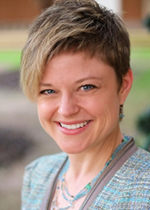 Emily Hammond, Associate Dean for Public Engagement and Professor of Law
Emily Hammond, Associate Dean for Public Engagement and Professor of Law
George Washington University Law School
Emily Hammond is a nationally recognized expert in energy law, environmental law, and administrative law. An elected member of the American Law Institute, Dean Hammond is also chair-elect of the Association of American Law Schools’ Administrative Law Section and a member scholar of the Center for Progressive Reform. Before entering academia, Hammond practiced law with Bondurant, Mixson & Elmore, LLP in Atlanta, Georgia and clerked for Judge Richard W. Story of the U.S. District Court for the Northern District of Georgia. She earned her J.D. from University of Georgia and a bachelor’s degree in Civil Engineering from Virginia Polytechnic Institute and State University.
 Shi-Ling Hsu, D’Alemberte Professor and Associate Dean for Environmental Programs
Shi-Ling Hsu, D’Alemberte Professor and Associate Dean for Environmental Programs
Florida State University College of Law
Hsu is an expert in the areas of environmental and natural resource law, climate change, law and economics, and property. He has published in a wide variety of legal journals and recently published a book, The Case for a Carbon Tax: Getting Past our Hang-ups to Effective Climate Policy (Island Press 2011). Prior to entering academia, Hsu was a senior attorney and economist for the Environmental Law Institute in Washington, D.C. He also practiced law in California, both as a deputy city attorney for the City and County of San Francisco and as an associate attorney with the firm of Fenwick & West in Palo Alto. He teaches Property, Environmental Law, Natural Resources Law, Coastal and Ocean Law, and Climate Change. Hsu earned his B.S. in Electrical Engineering, a J.D. from Columbia University, an M.S. in Ecology and a Ph.D. in Agricultural and Resource Economics from the University of California at Davis.
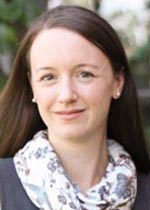 Sharon Jacobs, Associate Professor of Law
Sharon Jacobs, Associate Professor of Law
University of Colorado Law School
Professor Jacobs' research focuses on the impact of regulatory structure and process on policy outcomes in energy and environmental law. Recent projects have focused on agency decision making in the context of electricity regulation, greenhouse gas policy, and species preservation; agency strategies to "bypass" federalism limitations in the context of programs to encourage management of electricity demand (demand response); and methods of adapting existing legal constructs to new actors in electricity markets. Jacobs graduated from Harvard Law School in 2009, where she was the Executive Articles Editor of the Harvard Law and Policy Review. After graduation, Jacobs practiced in the energy and environmental regulatory groups at Covington & Burling LLP in Washington, D.C.
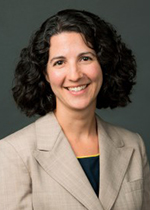 Sarah Light, Assistant Professor of Legal Studies and Business Ethics
Sarah Light, Assistant Professor of Legal Studies and Business Ethics
University of Pennsylvania, The Wharton School
Prior to entering academia, Professor Light served for ten years as an assistant United States attorney for the Southern District of New York, Civil Division, and for four years as the chief of the office’s Environmental Protection Unit, representing federal agencies such as the Environmental Protection Agency, the Department of Defense, and the U.S. Army Corps of Engineers. Light’s scholarly articles have focused on issues at the intersection of environmental regulation, governance, and management. Light earned her J.D. from Yale Law School and an M. Phil in Politics from Oxford University, where she was a Rhodes Scholar, and an A.B. in Social Studies from Harvard College.
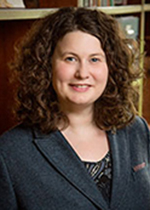 Arden Rowell, Professor and University Scholar
Arden Rowell, Professor and University Scholar
University of Illinois College of Law
Professor Rowell's research interests revolve around risk regulation and human behavior. She has taught courses on environmental law, administrative law, behavioral law and economics, risk and the environment, law and sustainable economic development, and valuation. After graduation from the University of Chicago Law School, she practiced at Perkins Coie LLP in Seattle, where she focused her practice on catastrophic torts. Rowell has a Bachelor of Arts in anthropology/archaeology, which she earned from the University of Washington.
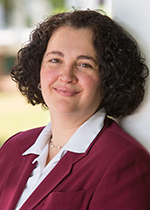 Erin Ryan, Elizabeth C. & Clyde W. Atkinson Professor
Erin Ryan, Elizabeth C. & Clyde W. Atkinson Professor
Florida State University College of Law
Professor Ryan specializes in environmental and natural resources law, property and land use, negotiation, and federalism. She is the author of many scholarly works, including FEDERALISM AND THE TUG OF WAR WITHIN (Oxford, 2012). As a law student, Ryan was an editor of the Harvard Law Review and a Hewlett Fellow at the Harvard Negotiation Research Project. She clerked for Judge James R. Browning on the Ninth Circuit before practicing environmental, land use, and local government law in San Francisco. Before law school, she served as a U.S. Forest Service ranger on the Mono Lake District of the Inyo National Forest, east of Yosemite National Park.
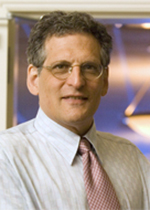 Mark Seidenfeld, Patricia A. Dore Professor of Administrative Law
Mark Seidenfeld, Patricia A. Dore Professor of Administrative Law
Florida State University College of Law
Professor Seidenfeld is recognized as one of the country's leading scholars on federal administrative law. He teaches courses in Administrative Law, Constitutional Law, Environmental Law, Law and Economics and Regulated Industries. Seidenfeld clerked for the Honorable Patricia Wald of the United States Court of Appeals for the D.C. Circuit and served as assistant counsel for the New York State Public Service Commission. He holds a B.A. in physics from Reed College and an M.A. in theoretical physics from Brandeis University, and is a 1983 graduate of Stanford Law School, where he was a senior articles editor for Stanford Law Review and elected to the Order of the Coif.
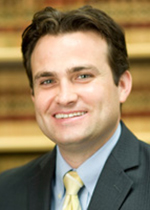 Christopher Walker, Associate Professor of Law
Christopher Walker, Associate Professor of Law
The Ohio State University Moritz College of Law
Professor Walker's research focuses on administrative law, regulation, and law and policy at the agency level. Prior to joining the law faculty, Walker clerked for Justice Anthony M. Kennedy of the U.S. Supreme Court and Judge Alex Kozinski of the U.S. Court of Appeals for the Ninth Circuit, and worked on the Civil Appellate Staff at the U.S. Department of Justice. He received his B.A. from Brigham Young University, his master’s in Public Policy from Harvard University, and his J.D. from Stanford Law School.
5.5 general CLE credits approved - Course 1606356N
5.5 credits toward the State and Federal Government and Administrative Practice certification
$50 CLE registration fee (includes continental breakfast and lunch)
Telephone: 850.645.8749 • Email: jwalsh@law.fsu.edu
